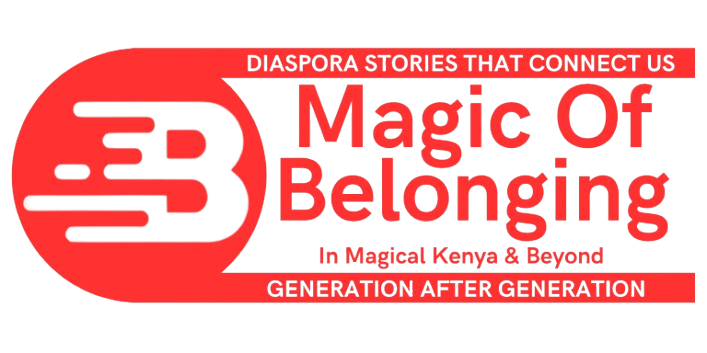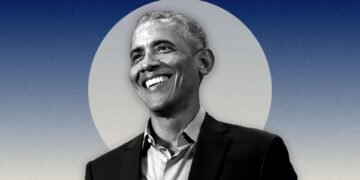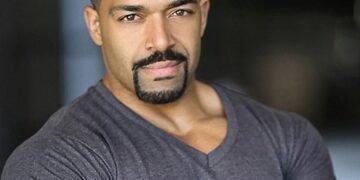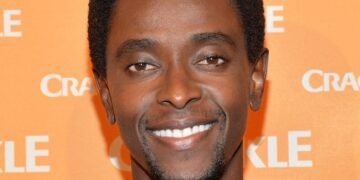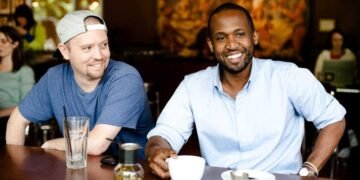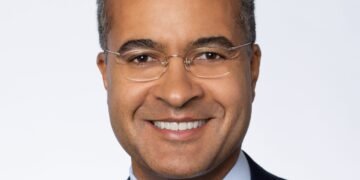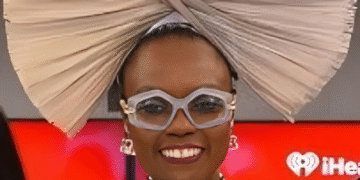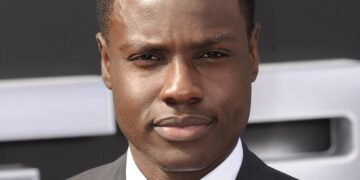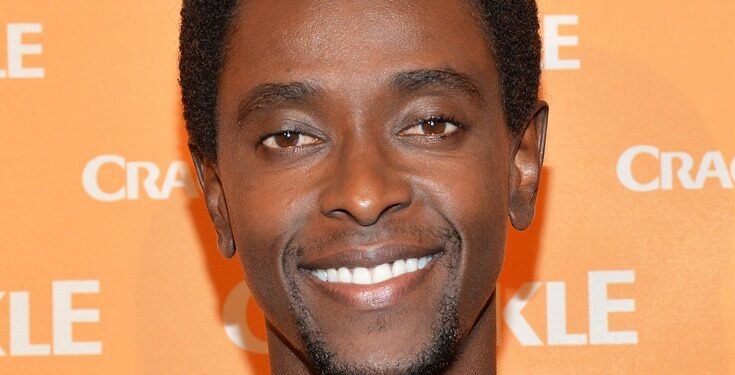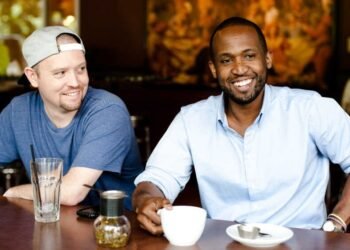Edi Mūe Gathegi didn’t set out to become a Hollywood star. His story, like many others in the diaspora, began with quiet transitions, small moments of identity, and a longing that never quite faded. Born in Nairobi on March 10, 1979, and raised in Umoja Estate, Edi’s earliest memories are of Kenya’s vibrant colors, the sound of Swahili, and the warm, steady embrace of community. Though his family relocated to Albany, California, when he was just three years old, the rhythm of Kenya never left him. It lived in the way his mother spoke to him, in the stories his father carried, and later, in the characters he brought to life on screen.
Even thousands of miles away, Kenya remained a steady presence—like a hum in the background of his life. “I’m inextricably bound to my roots,” Edi once said. “I know exactly where I came from, and you can’t take that out of yourself.”
From Dreams of Basketball to the Stage Lights of NYU
Edi grew up in a household where books, discipline, and purpose were part of daily life. His father, Dr. John Gathegi, a professor trained at UC Berkeley, and his mother, Anne Wanja Gathegi, raised Edi and his siblings—Nathan and Betty—with a fierce pride in their Kenyan identity. Edi thrived as a young athlete, eventually landing a basketball scholarship at the University of California, Santa Barbara.
But life, as it often does, pivoted. A severe knee injury ended his basketball dreams and plunged him into a dark period of uncertainty. It was there, in that space between what was lost and what might still be possible, that Edi signed up for an acting class—just to fill time. That “easy” class changed the trajectory of his life. The stage gave him something basketball never could: the ability to express every part of who he was. He later earned an MFA from NYU’s Tisch School of the Arts in 2005, training relentlessly and holding tight to the resilience inherited from home.
Sharing the screen with legends like Morgan Freeman and Ed Harris lit a fire in him. “That was the most significant ‘if you ever give up, you’ll never know’ moment,” Edi later reflected
His mother, Anne, became his anchor. Even across continents, she greeted him by the names of the characters he played—a tender gesture that reminded him who he was and who he was becoming.
Breaking Into Hollywood with Kenya in His Bones
Like many actors of color, Edi’s early roles were boxed into stereotype—his first was a Haitian cab driver in Crank (2006). Still, he approached it with meticulous care, even enlisting a Haitian friend to help with the accent. That attention to detail and cultural respect would become a hallmark of his career.
His breakout role came a year later in Ben Affleck’s Gone Baby Gone, playing the dangerous yet compelling “Cheese.” Sharing the screen with legends like Morgan Freeman and Ed Harris lit a fire in him. “That was the most significant ‘if you ever give up, you’ll never know’ moment,” Edi later reflected.
Over the next decade, Edi became known for choosing roles that demanded nuance and depth—like the elegant vampire Laurent in the Twilight saga, the evolutionary mutant Darwin in X-Men: First Class, and the mysterious Matias Solomon in The Blacklist. Each performance carried an undercurrent of dual identity: an American actor with a Kenyan soul.
In StartUp, he portrayed Haitian crime boss Ronald Dacey with a quiet intensity that critics loved. And in The Harder They Fall, he played legendary cowboy Bill Pickett, standing shoulder-to-shoulder with Idris Elba and Regina King, rewriting Western history through a Black lens.
Yet, beneath the fame, Edi never let go of the grounding force that kept him whole. “We came from nothing, and then I was blessed,” he once said. “But I didn’t turn the drive off—I grinded.”
Grief, Return, and Reconnection
In October 2022, tragedy struck. Edi’s mother, Anne, passed away. Her death was not just a personal loss—it was a rupture in the spiritual thread that tied him to home. In 2023, he returned to Kenya for the first time in five years, alongside his Romanian wife, Adriana Marinescu. It was a pilgrimage of grief and rediscovery.
“I needed to connect with the earth that brought her into this world,” he said. In the familiar streets of Nairobi, among the people and places that shaped his earliest days, Edi found healing—and a renewed sense of purpose.
Together with his brother Nathan, a creative director based in Nairobi, Edi began laying the foundation for something bigger than himself: a cultural homecoming, not just personal, but communal.
A Mission to Uplift Kenya’s Creative Economy
Edi’s return wasn’t just emotional—it was strategic. He envisioned a creative renaissance rooted in Kenya, powered by local talent and connected to global platforms. His plan included:
“My goal is to help storytellers tell better stories,” he shared… “We must make Kenya competitive,” he said.
- Training and Mentorship: At Nairobi’s GoDown Arts Centre, he hosted experimental acting workshops, transferring tools from Hollywood to the hands of young Kenyan actors. “My goal is to help storytellers tell better stories,” he shared.
- Policy and Advocacy: Edi held meetings with the Kenya Film Commission and the Tourism Board, urging for tax breaks and bilateral production deals that would make Kenya a serious player in the global film industry. “We must make Kenya competitive,” he said.
- Cultural Diplomacy: He screened his film Princess of the Row (executive produced by Morgan Freeman) to local audiences, using it as a conversation starter about how diaspora stories can be bridges—not just between places, but between generations.
And he’s just getting started.
Full Circle: Kenya as Muse, Mission, and Message
Edi Gathegi is set to play Mister Terrific in James Gunn’s upcoming Superman (2025)—a role that symbolizes intellect, strength, and innovation. But beyond the costume, Edi remains grounded in his original role: son of Kenya.
His work ethic echoes his father’s academic rigor. His emotional honesty channels his mother’s enduring love. And his vision—of a Kenya celebrated globally for its artistry—is powered by a belief that storytelling can heal, connect, and transform.
“Art is essential to humanity,” he insists. “Storytelling is how we mark time, build community, and change the world.”
From Umoja Estate to red carpets, from grief to global stage, Edi Gathegi’s journey is a mirror for many in the diaspora: a reminder that we carry our belonging within us. And when we return home—whether physically or through purpose—we create space for others to do the same.
The Review
The Last Guardian
A wonderful serenity has taken possession of my entire soul, like these sweet mornings of spring which I enjoy with my whole heart. I am alone, and feel the charm of existence in this spot, which was created for the bliss of souls like mine.
PROS
- Good low light camera
- Water resistant
- Double the internal capacity
CONS
- Lacks clear upgrades
- Same design used for last three phones
- Battery life unimpressive
